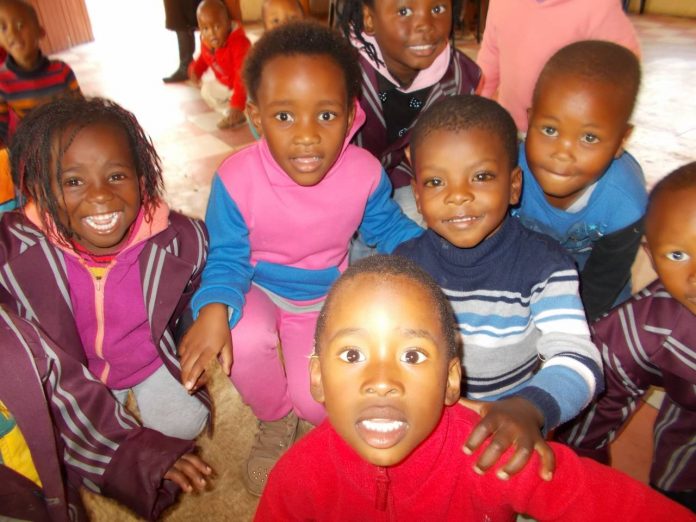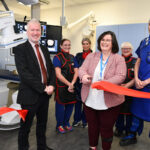Imagine a hospital serving 50,000 patients with just three doctors, in an area stricken by Aids. Or a woman and child who hadn’t eaten for days, abandoned by a husband who had infected her with HIV.
These are some of the challenges which have faced Caroline Izatt, a transfusion nurse specialist at Forth Valley Royal Hospital, who visits South Africa regularly as part of the Aid4Aids charity, set up by Alva Parish Church.
Caroline, who first went to the Eastern Cape in 2004 and has just returned from her third trip to Tsolo, says the Aids situation is improving with access to anti-virals, but there is still a big stigma attached to it. She describes helping set up a project where, with the help of a local nurse called Lulu, workshops were arranged to help people care for family, friends and neighbours suffering from Aids. The education message is spread by word of mouth using lay people. Caroline explained: “For example, someone can go round and say look at me; I’ve been HIV positive for 13 years. I eat a good diet, take my medication and I have a normal life.”
The Tsolo area is one of the poorest in South Africa. Homes are two-room huts made from mud bricks, left to dry in the sun or shacks built from whatever people can find, for example corrugated steel and tarpaulins. These can be sited on waste ground close to where people dump rubbish as there are no bin collections.
Money raised through the charity helps with basic needs to keep people clean by providing items such as face cloths, baby baths and incontinence pads and to provide simple dietary foods such as porridge. Funds are also channelled into running a vegetable garden which provides food for pre-school children. Donations from Aid4Aids pay for a retired teacher and a woman to cook meals for the 24 children who attend Sinobomi Pre-School. On this recent trip the charity also supplied some educational materials for the teacher including exercise books, activity books, work sheets, coloured pencils, erasers and sharpeners.
Caroline visits the Eastern Cape with Joyce Bell, a retired Strathcarron Hospice nurse. They have helped set up several health and education initiatives. Volunteer carers have been shown how to look after people who are bedridden, and, at a small medical centre, local residents can have their blood pressure and blood sugar checked, and receive HIV counselling and testing.
But it’s a huge challenge. Caroline recalls a poignant moment whilst visiting a shanty town with a group of women training to be home-based carers. She explained: “We came across a young woman who was 24 and had a three year old son. They hadn’t eaten for several days after her husband walked out after infecting her with HIV. The support workers had been given a packed lunch but willingly shared what they had, whilst knowing that it was probably the only meal that they were going to get that day.”
Caroline looks forward to her African trips because, she says, the people are so lovely. She said: “It really angers me when I hear people complain about our health service. They really don’t know they’re born. They ought to go out there and see how the other half live. These people are so happy and contented with what little they have.”




